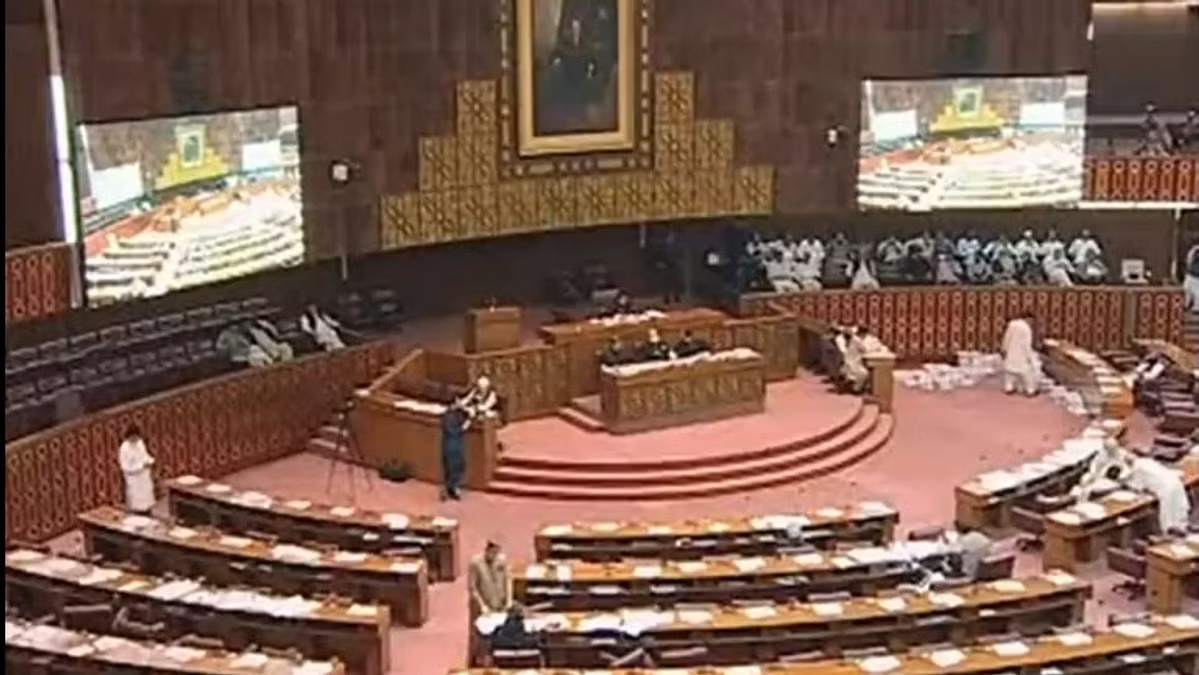- Advertisement -
ISLAMABAD, Aug 16 (APP):The National Assembly Standing Committee on National Food Security and Research on Friday reaffirmed its commitment to revitalize Pakistan’s cotton industry through a vigorous and collaborative approach.
The committee met under the Chairmanship of Member National Assembly (MNA) Syed Tariq Hussain, said a news release.
Comprehensive review and strategic recommendations were discussed in the meeting, stressing the importance of addressing the multifaceted challenges faced by the sector.
Syed Tariq Hussain said that the committee aims to revive cotton production, stabilize prices, and enhance farmers’ livelihoods by implementing targeted interventions, supporting technological advancements, and fostering partnerships between key stakeholders.
He said that the committee will continue to monitor progress closely and work towards practical solutions to ensure sustainable growth and resilience in the cotton industry.
Earlier, the additional secretary provided a detailed briefing on the Cotton Policy for the fiscal year 2024-25.
The committee was thoroughly briefed on the policy’s strategic aims, which are designed to rejuvenate and enhance cotton production throughout Pakistan.
The committee recommended a comprehensive approach, featuring targeted strategies to increase cotton yields, improve seed quality, and secure better market access for growers.
The key components suggested by the committee included the adoption of advanced agricultural technologies, offering financial incentives for research and development, and establishing efficient channels for domestic and international markets integration.
The committee also engaged in detailed discussions on these elements, emphasizing the policy’s potential to transform the cotton industry and improve farmers’ livelihoods.
It expressed grave concerns over the perpetual decline in cotton production and cotton prices in the country. The ramifications of this trend on farmers’ livelihoods were thoroughly discussed.
The committee members highlighted the urgent need for effective remedies to stabilize and boost cotton production, including subsidies, better pest control measures, and the adoption of modern farming techniques.
The reasons behind the widespread closure of cotton ginning factories were deliberated. The committee noted the adverse impact this has on the cotton value chain, particularly on employment and local economies.
The members called for immediate measures to revive these factories and sustain the ginning sector.
During the meeting, the current challenges and administrative difficulties confronted by the Pakistan Central Cotton Committee (PCCC) were also discussed.
The discussion focused on inefficiencies within the existing operational protocols, bureaucratic impediments, and the necessity for enhancement of the resource management.
The committee emphasized the critical need for a strategic restructuring to reform the PCCC’s organizational framework and processes.
The goal of these reforms is to streamline administrative functions, improve decision-making processes, and implement more effective policies that align with the evolving requirements of the cotton industry.
Additionally, the body engaged in comprehensive deliberations regarding the outstanding issues between the PCCC and the All Pakistan Textile Mills Association (APTMA).
Emphasis was placed on fostering collaborative solutions to enhance efficiency and address critical concerns within the cotton sector, aiming to fortify the framework for future growth and stability in Pakistan’s textile industry, a press release added.
The committee evaluated the research conducted by the PCCC on cotton and its seeds, with a focus on how the findings could be practically applied to enhance cotton production across Pakistan.
The meeting was attended by Minister for National Food Security and Research Rana Tanveer Hussain, MNAs Rasheed Ahmad Khan, Rana Muhammad Hayat Khan, Chaudhary Iftikhar Nazir, Ms. Musarrat Asif Khawaja, Zulfiqar Ali Behan, Ms. Farakh Khan, Usama Hamza, Muhammad Mueen Watto, Keso Mal Kheal Das, and Makhdoom Zain Hussain Qureshi.

